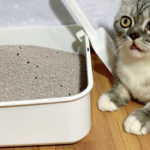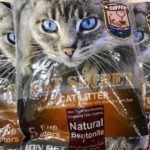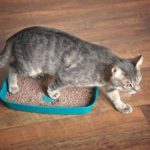Taking care of a pet cat is not an easy task as you have to pay attention to its diet, sleeping habits, and hygiene. One popular method that cat owners often choose is to use cat litter.
1 What is Cat Litter?
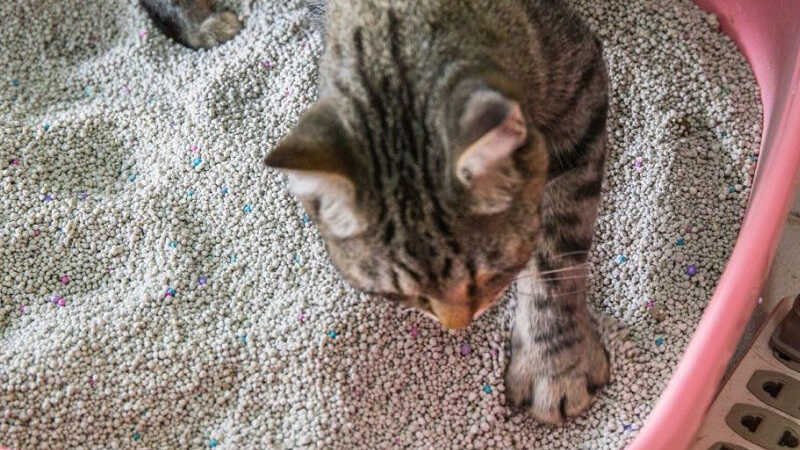 Cat litter is made from various compounds
Cat litter is made from various compounds
At first, you might think that this type of litter is similar to the sand used in construction. However, the difference lies in the fact that cat litter is made from various compounds such as clay, silica, and bentonite.
Because of this, it has the ability to quickly absorb waste and eliminate odors. Using this type of litter for your cat will make it easier to maintain hygiene in your living space, while also saving time and money on cleaning up after your furry friend.
2 Types of Cat Litter
There are three main types of cat litter commonly found on the market:
-
Clumping clay litter.
-
Non-clumping clay litter.
-
Silica gel litter.
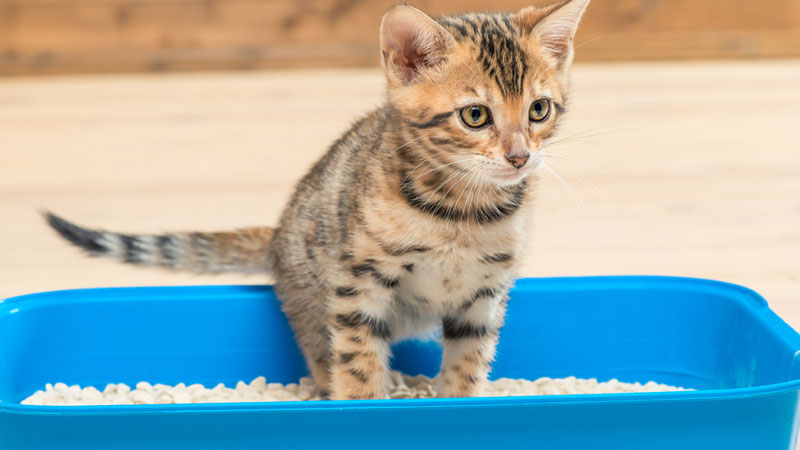 Types of cat litter
Types of cat litter
Although these three types have different structures, they all share some common characteristics, such as good absorbency and quick odor control. Depending on your preferences, you can choose any type of litter that suits your cat and your budget.
Reference:
3 Advantages and Disadvantages of Cat Litter
Clumping Clay Litter
Advantages
-
Soft and absorbent litter substrate
-
Easy to clean and cost-effective (you only need to scoop out the clumped litter)
-
Good antibacterial properties
-
Reasonably priced
Disadvantages
-
Creates dust in the living environment
-
Not biodegradable
-
Non-clumping clay litter
-
Creates dust in the living environment
-
Not biodegradable
-
Poor odor control
-
Requires frequent cleaning
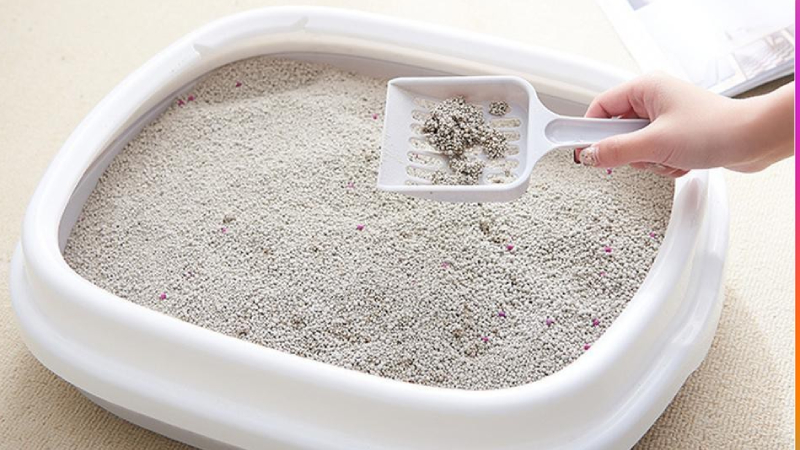 Advantages and disadvantages of cat litter
Advantages and disadvantages of cat litter
Non-Clumping Clay Litter
Advantages
-
Fairly soft litter substrate with decent absorbency
-
Most affordable option among the three types
Disadvantages
-
Creates dust in the living environment
-
Not biodegradable
-
Poor odor control
-
Requires frequent cleaning
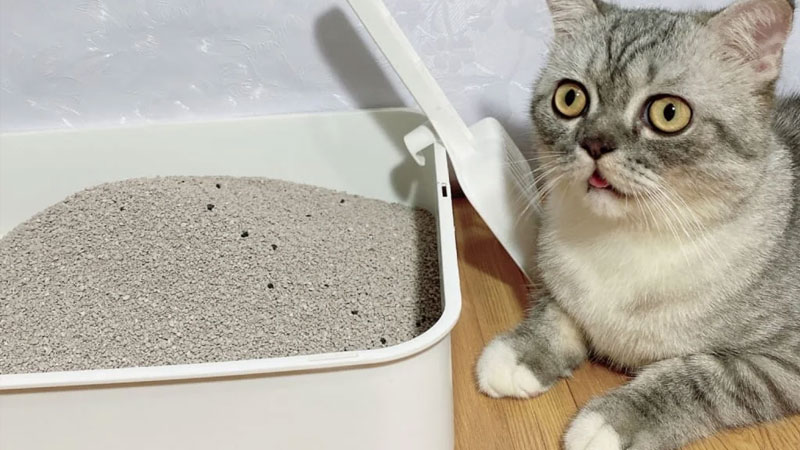 Advantages and disadvantages of non-clumping clay litter
Advantages and disadvantages of non-clumping clay litter
Silica Gel Litter
Advantages
-
Does not create dust in the living environment
-
Good antibacterial properties and effective odor control
-
Easy to clean
-
Available in a variety of attractive colors
-
Easy to determine when to replace the litter
-
Offers a range of fragrances
Disadvantages
-
If ingested, it can be harmful to the cat’s health
-
Slightly more expensive.
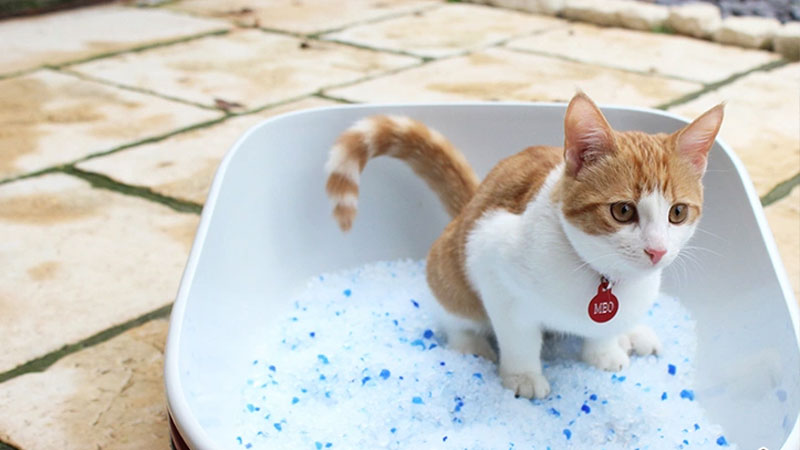 Advantages and disadvantages of silica gel litter
Advantages and disadvantages of silica gel litter
According to user feedback, clumping clay litter is the most preferred option due to its superior advantages and affordable price. However, you can choose any of the other types based on your preferences and budget.
For kittens, it is recommended to use non-clumping litter to prevent accidental ingestion.
Reference:
4 How to Use Cat Litter
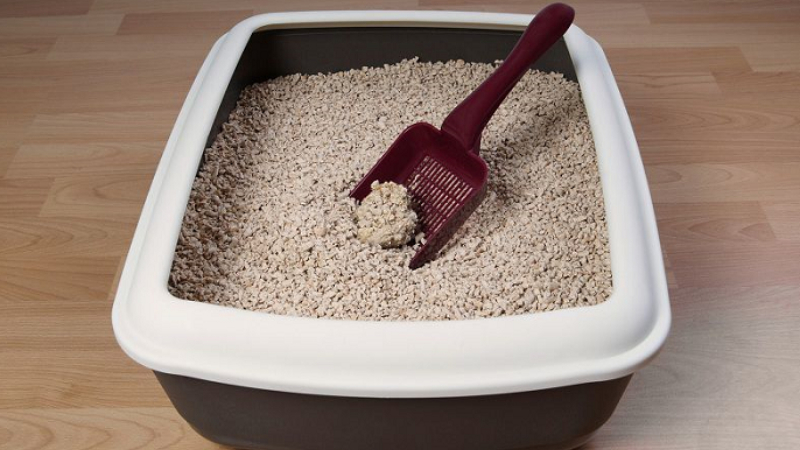 Guide to using cat litter
Guide to using cat litter
To make the most of your cat litter and save money, consider the following tips:
Use an appropriate amount of litter, depending on your cat’s size
When filling the litter box, aim for a depth of about 2-3 cm to prevent your cat from scattering the litter and creating a mess. This depth also ensures the most effective use of the litter.
Choose a litter box or cat toilet that suits your cat’s size
Select a litter box that is comfortable for your cat and allows you to estimate the right amount of litter needed. Opt for a box with higher sides, smooth, curved edges to prevent injuries, and minimize litter spillage. When choosing a cat toilet, avoid fully enclosed designs as they may cause anxiety in your cat.
When choosing litter, opt for unscented varieties as they provide a more comfortable experience for your cat.
Clean the litter box using a specialized scoop
A litter scoop is designed to remove used litter while allowing clean litter to pass through its slots. Cats tend to bury their waste, so a specialized scoop helps you easily separate and dispose of clumped litter while keeping the rest clean and dry.
Replace the litter at the right time
Replacing the litter regularly is crucial for your cat’s comfort and hygiene. Aim to replace the litter every 5-8 days to ensure a clean and pleasant environment for your cat.
Proper litter storage: Store cat litter in a cool, dry place, away from direct sunlight, to prevent bacterial growth and clumping before use.
Reference:
With these tips, we hope you can now effectively and economically use cat litter. Good luck!
The Ultimate Guide to Drying Flowers with Kitty Litter: A Little-Known Trick
Introducing a unique twist to the traditional art of flower pressing – learn how to dry flowers using silica gel! This innovative method will preserve the delicate beauty of your blooms, resulting in vibrant and long-lasting decorations. With this simple technique, you’ll be able to create stunning arrangements that will brighten up any space. So, if you have some silica gel cat litter on hand and are eager to try something new, read on as we reveal the secrets to achieving perfect pressed flowers every time.
The Ultimate Guide to Affordable, Odor-Eliminating Cat Litter Sands
Cat litter is a hot topic among pet owners, and for good reason. It’s a necessity for any cat owner, and with so many options available, it can be tricky to find the perfect one. That’s where we come in. We’re here to showcase the best affordable, odor-eliminating cat litters on the market, and offer them to you at the very best prices.
The Ultimate Guide: 4 Best Litter Sands for Maneki Neko Cats
Introducing the pursuit for the finest cat litter: a quest for quality and odor-eliminating excellence. We aim to uncover the most preferred options on the market, offering an elevated experience for both cats and their owners. With a focus on effectiveness and preference, we seek to identify the top choices that surpass the ordinary, ensuring a pleasant and hassle-free environment. Join us on this journey as we explore the best that the world of cat litter has to offer.
























